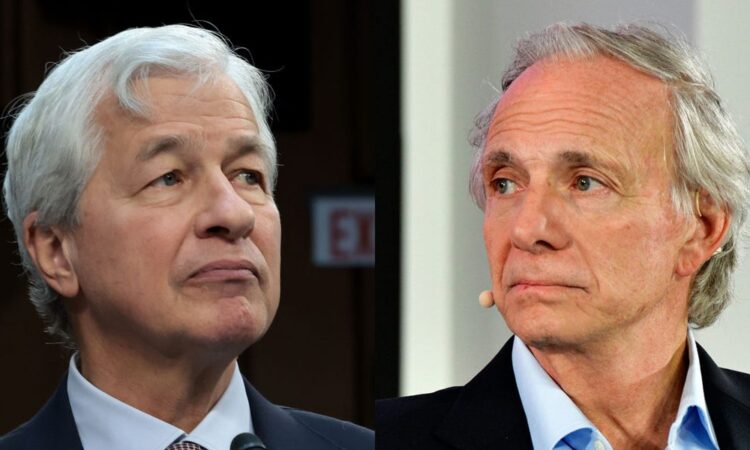
- High-profile investors and billionaires warned in the past few years that a recession was imminent.
- But the US economy is performing better than expected, with strong job reports and lower inflation.
- Jamie Dimon and Ray Dalio told WSJ that the US economy’s performance has surprised them.
Chase CEO Jamie Dimon and billionaire hedge-fund founder Ray Dalio appear to be hedging on their doom-and-gloom predictions for the US economy after warning for some time that a recession was imminent.
In September 2022, Dalio told MarketWatch that, as stocks and bonds suffer, the US will likely slide into a recession in 2023 or 2024.
Around the same time, Dimon told CNBC that while the US economy was “actually still doing well,” he believed that runaway inflation, high interest rates, and the war in Ukraine could cause the US to go into a recession in “six to nine months.”
Many high-profile investors, billionaires, and economists anticipated a painful economic storm in the US, but the economy has so far defied expectations amid strong jobs reports, cooling inflation, and high consumer spending.
“I was bearish on the economy,” Dalio told The Wall Street Journal. “I got it wrong.”
Dalio explained to The Journal that he expected the economy to slow down due to high interest rates, which he said “curtails private-sector demand and asset prices.”
Dimon told the newspaper that he “would have thought some of the fiscal stimulus would have worn off by now.”
The strength of the US economy’s performance has some experts thinking the country is on its way to a “soft landing.” But not all economists are sold on this rosy outlook.
Citi’s chief US economist, Andrew Hollenhorst, told CNBC in February that the US is headed for a recession in mid-2024, pointing to reduced hours worked by employees and inflation, which he said is still too high.
Economist David Rosenberg also questioned the predominant narrative on the US’s “roaring economy.” The Rosenberg Research president also pointed to the reduced number of hours worked but mentioned other warning indicators, including the reduced number of new homes built in January and decreasing industrial production and retail sales volume.
In a recent interview with CNBC’s Fast Money Halftime Report, Dimon also expressed some pessimism, stating, “markets change their mind pretty quickly.”
“Remember, in 1972 you felt great, too. And before any crash, you felt great, and then things change,” he said.






